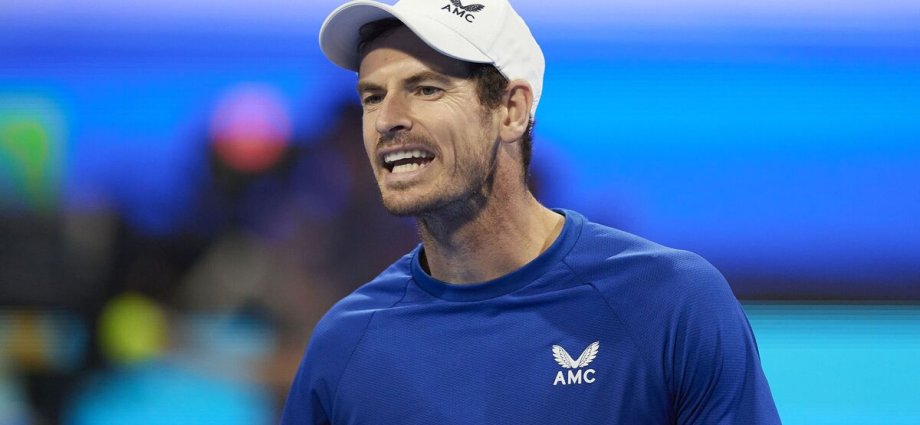Andy Murray has revealed that he has had doubts over his ability following his comeback win over Denis Shapovalov at the Dubai Tennis Championships. The Brit has endured a torrid run of form over the past few months but is hopeful that his victory in Asia on Monday will help him gain momentum as he heads into the latter stages of the competition.
Murray secured his second victory of the season in a gruelling two-hour and 31-minute match at the championships, being forced to dig deep to secure a 4-6 7-6(5) 6-3 win. The former world No 1 did show that frustrations were threatening to get the better of him midway through the match though, throwing his racket on the floor during the latter stages of the first set.
Murray soon regained composure and found his rhythm to secure an important victory over Shapovalov. Speaking after the win, the 36-year-old admitted that the result is likely to give him a lift heading into his next few matches.
He said: “Winning matches is what gives confidence. A lot of people, I don’t know whether it’s psychologists, believe that you can improve your confidence by working hard away from the court, training hard, working on all the right things. The number one thing in sport that builds confidence is winning matches. That’s my belief and what I’ve experienced.
“Getting through obviously a close match today… Last week was good that I got a win. Obviously, lost a very close one against a player who played a brilliant tournament. Yeah, there’s been some signs of progress, I would say, in the last couple of weeks. It’s not obviously exactly where I’d want it to be, but it’s better than where it was.”
Murray was then quizzed on his mental thought processes throughout his recent matches and whether they dictate his confidence, to which he spoke of his recent doubts, continuing: “I think every single person, this is not just athletes, but everyone experiences doubts. You’ll question yourself about whether you’ve made the right decision, done the right thing, whether you’re able to win the match or able to keep going. Obviously, then you have a choice of what to do with those thoughts.
“I think one of the hardest things with sports is that you experience that lots of times during the day and during matches. I think how you talk to yourself can influence that a bit. That’s where for me, I’ve always felt better when I’ve shown my frustration. The challenge for me is making sure that the frustration doesn’t continue through into the next point. If I’m still thinking about what just happened and what’s in my head, I’m not annoyed I lost the last point, that’s when it can have a detrimental effect on my tennis.
“When I show my frustration, get it out, focus on the next point, what I’m trying to do, is when I feel my best on the court. When I’m quiet and not saying anything, I feel really uncomfortable. It’s not me, not what makes me play my best I don’t believe.”











